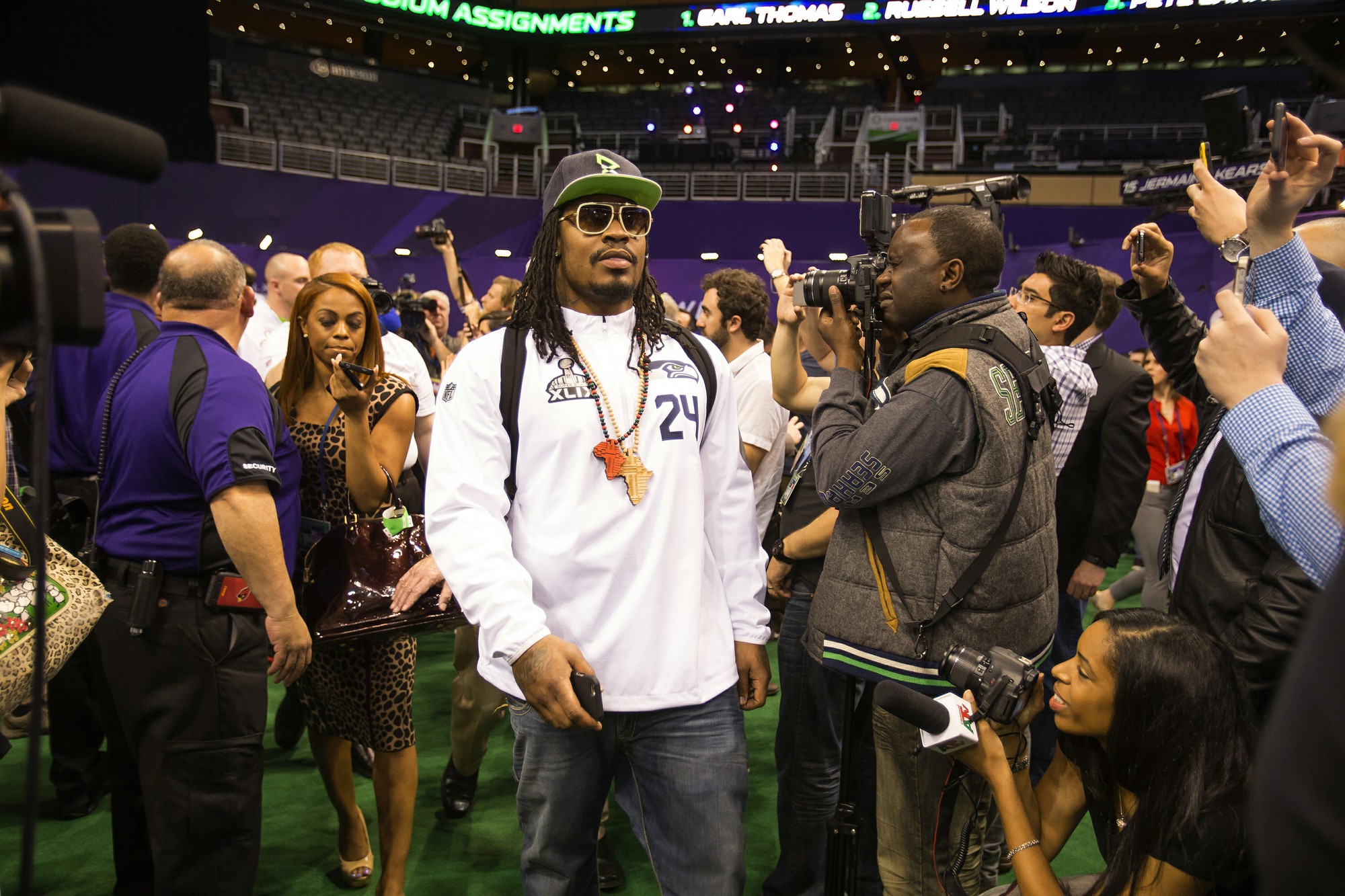Journalists need access to earn athletes trust
New York Jets wide receiver Brandon Marshall is a blessing to professional football. He’s one of those rare athletes who speaks his mind and doesn’t concern himself with his public image. As I watched him discuss the connection between the media and players on Tuesday night’s “Inside the NFL,” I couldn’t help but listen as he expounded on the troubles players face when it comes to sports media.
Marshall said the media’s invasive questioning is “an epidemic,” and that he personally believes the media has too much access — specifically citing the frequent post-shower interviews minutes after the end of a game while players are merely trying to get dressed.
Here’s something I’ve been meaning to get off my chest for a while — I don’t generally like sports reporters. From my few years of experience in this field, I’ve come to learn that most of them have no regard for what an interview is like for an athlete.
I’ve looked on as a small mob of local beat writers backed Aggie hoopster Chris Smith against a wall and drilled him with questions minutes after a tough loss. I’ve seen frustration brewing under the surface of USU football head coach Matt Wells’ generally stoic expression because of needlessly intrusive inquiries. I’ve witnessed Stew Morrill, an Aggie legend notorious for his disdain for all things media, stare at a fellow reporter in disbelief after he was asked to repeat his response to an earlier question because said reporter had arrived late to the post-game presser.
To put it bluntly, sports reporters can be jerks.
They forget these coaches and players aren’t just names and numbers on a game book. They forget to think of injuries as the emotionally taxing challenges they so often are. They don’t even let teams digest a tough loss before asking them to assign blame.
But failing to put themselves in the shoes of their interviewees is just half of the problem. It’s also commonplace for sports writers to entirely forget about the storytelling element of journalism, and replace it with an unending search for a scandal that never surfaces.
The beauty of sport is that it’s pure unscripted entertainment — so many stories are begging to be shared. Tales of personal struggle, of overcoming odds, of comebacks and setbacks and unexpected quarterbacks all just waiting for a writer with enough sense to ask about it to knit it all together into a good read.
Instead, too many sports writers waste everyone’s time and patience searching for non-existent dirt on an unfortunate coach or looking to expose a player for some inconsequential wrongdoing.
Here’s where I depart from Marshall’s sentiments. There are good writers out there looking to tell stories that ought to be told, but they cannot do it without access — and access still doesn’t guarantee trust.
To write a good story — and more importantly, an honest one — reporters have to have access to athletes, but they must also earn their trust. Reporters have to be able to level with players like they’re normal people, since outside of the arena that’s exactly what they are. Players need to know journalists aren’t just trying to jot something down before deadline. They need to know they’re being interviewed out of genuine interest in their thoughts and feelings and views, and not because they happened to be the team’s leading scorer that particular night.
We’ve seen what distrust of the media looks like — Marshawn Lynch famously ripped Super Bowl reporters back in February for not really caring what he had to say. Honestly it was sort of beautiful to watch a running back school a bunch of journalists at their own game.
It shouldn’t be that way though. If good sports writing is to survive, it’ll start with using the limited access we do have to assure athletes we can be trusted. Not to paint everything these players ever do in a positive, welcoming light, but to be fair and firm and truly interested in what they have to say.
Sports writers ought to quit looking for a good quote, and start looking for a good story.
— Logan Jones is a junior majoring in journalism. Contact him with feedback at logantjones@aggiemail.usu.edu or on Twitter @Logantj.

